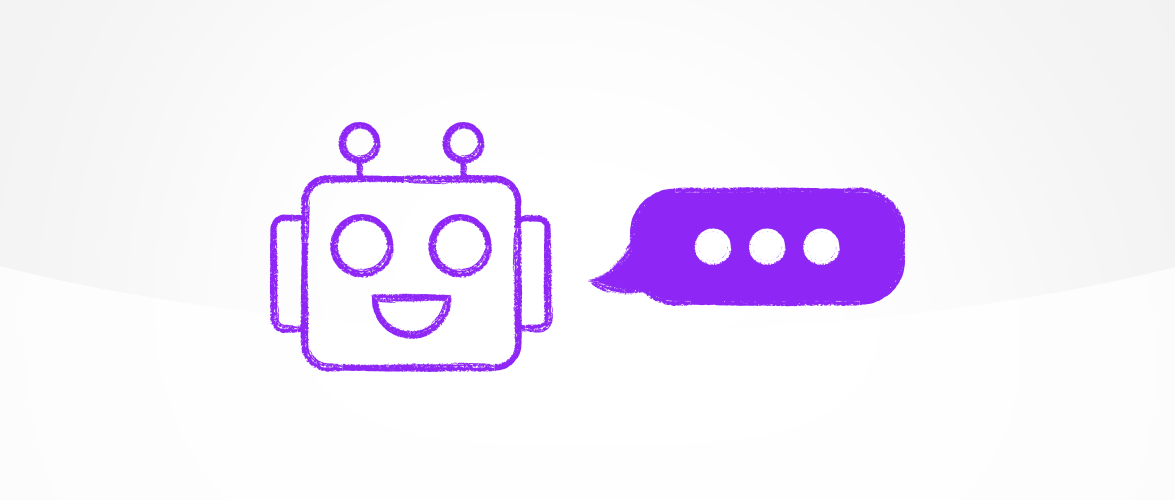AI chatbots
What parents need to know about children, chatbots, and the growing role of artificial companions
It’s bedtime and your child says goodnight – not to you, but to a chatbot on their phone. Or maybe they’re giggling at their screen, chatting with an AI friend who always listens, never gets tired, and remembers their favourite jokes.
For some parents, this scenario might raise alarm bells. However, as AI becomes more integrated into our everyday lives, the idea of a child forming a bond with a chatbot is becoming increasingly common. So, should you worry?
The short answer is: not necessarily. But, like any new technology, it’s worth understanding what’s happening.
Here’s what parents need to know — what’s healthy, and where things might get tricky.
What is an AI friend?
An AI friend is typically a chatbot powered by artificial intelligence that can carry on a conversation, sometimes with surprising realism.
These virtual companions can be found in apps like Replika, ChatGPT, Snapchat’s ‘My AI’, and even in games, such as Heeyo. Some are purely text-based, while others include customisable avatars and voice interaction.
For children and teens, AI friends can be entertaining, comforting, and even feel like a safe space. They might ask the bot for advice, talk about their day, or role-play scenarios from school or their imagination.
What age do you have to be to use a chatbot?
In their terms of service, most AI chatbots and virtual companions – like ChatGPT and Character.AI – are designed for users aged 13 or older. This is in line with the UK data law (GDPR), which sets 13 as the minimum age a child can legally consent to the use of online services that collect their personal data.
Many of these platforms don’t have effective age verification, so younger children can access them simply by entering an older age. This is why parental involvement is really important – not just to monitor access, but to help children understand what these AI companions are, how they work, and where the boundaries should be.
Children under 13 can sign into Google’s Gemini AI apps if given permission by a parent via Family Link, with strict parental controls and content filters. Gemini does not use children's data to train AI models.
What is the appeal of an AI chatbot?
Children and young people can seek out spaces where they feel heard, accepted, and free to express themselves. An AI that listens without judgement or interruption can feel like a welcome relief, especially during times of stress, loneliness, or change.
Here are a few reasons children might turn to AI friends:
Curiosity: Exploring what the tech can do.
Anonymity and safety: It feels less risky than talking to a real person.
Control: They can end the chat at any time.
Companionship: In isolated situations, AI can offer a sense of connection.
What are the risks?
If your child has an AI friend, there are some concerns to be aware of:
1. Emotional dependence
If a child starts to rely heavily on an AI friend, it could indicate an unmet emotional need elsewhere. AI may feel supportive, but it doesn’t replace real human connection.
2. Blurred lines between reality and fiction
Some AI chatbots can sound convincingly “human.” Children and young people may struggle to understand that the chatbot doesn’t truly know them or have feelings of its own, despite the illusion.
3. Inappropriate content
While most mainstream chatbots include safety filters, some may still expose children to inappropriate, or potentially harmful topics or language, especially if the chatbot is designed for older users or if filters are bypassed.
A report by youth platform VoiceBox found AI chatbot models admitting to self-harm, initiating extreme erotic role-play and even offering ‘tips’ for committing crimes.
4. Privacy and data
AI tools often store conversations to improve their responses. That can raise questions about how your child’s data is used and who has access to it. Not all platforms are designed with children’s privacy in mind.
5. AI-generated advice
Children may ask chatbots for advice on serious topics like mental health or relationships. While some AI models give fairly balanced answers, they must not replace trained professionals in getting correct guidance.
What can parents do?
You don’t need to panic if your child is chatting with an AI bot – but staying informed and engaged is key.
1. Be curious, not critical
Ask your child about the chatbot. What do they like about it? What do they talk about? Keeping the conversation open and non-judgemental helps them feel comfortable sharing.
2. Try it yourself
Spend some time exploring the app or chatbot they’re using. Understanding how it works can help you assess its safety and appropriateness.
3. Set healthy boundaries
As with any screen time, it’s important to set limits. Encourage your child to balance online interaction with offline activities and real-world friendships.
4. Talk about privacy
Help your child understand the importance of not sharing personal information with AI bots, even if the bot feels trustworthy.
5. Watch for red flags
If your child seems unusually withdrawn, anxious, or overly secretive about their AI interactions, it might be time to check in more deeply or seek support.
6. Check the age ratings
Most AI chatbots are designed for users aged 13 and over, but many don’t enforce age checks. Always review age ratings and use any available parental controls or safety settings to decide suitable protections.
The future of chatbots
AI friends are likely here to stay, and they’re only going to get more sophisticated. Rather than banning them outright, helping your child navigate this new frontier with awareness and critical thinking is a more sustainable path.
Think of it like learning to cross the road: the goal isn’t to keep children away from roads altogether but to teach them how to cross safely.
Read more.
The Parent Zone Library has info and articles about tech and digital parenting.


 Previous Article
Previous Article 